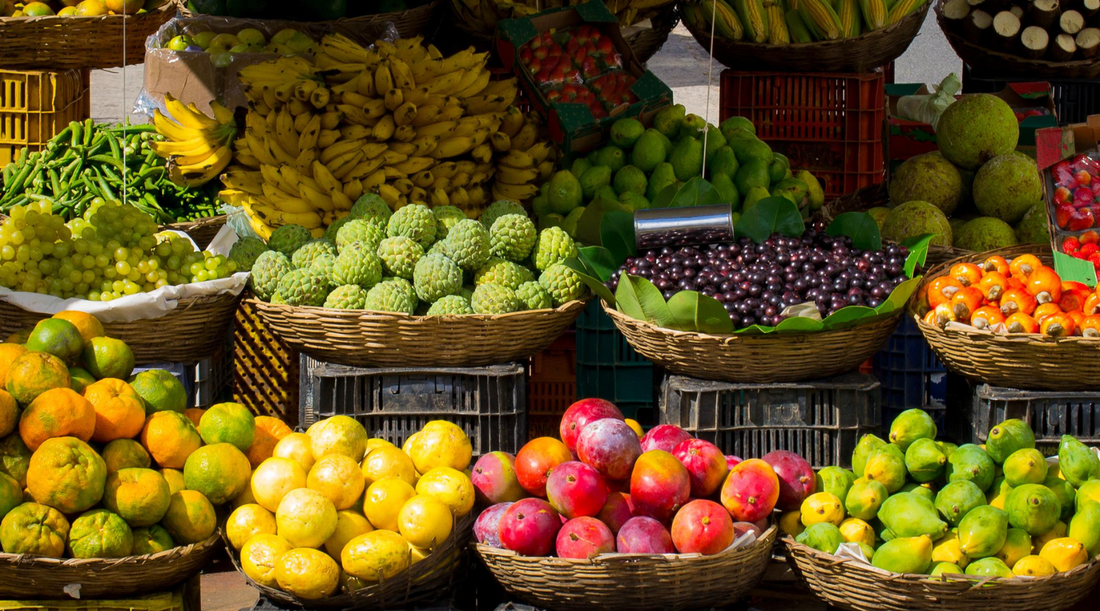
Healthy Fruits for Dogs: Top Picks for a Nutritious Treat
Fruits are not only a delicious snack for humans but can also offer a variety of health benefits to our canine friends. Introducing fruits into your dog's diet can provide essential vitamins and antioxidants, aiding in their overall health and vitality. However, not all fruits are safe for dogs. In this blog, we'll explore the best fruits to feed your dog and those you should avoid to ensure your pet stays healthy and happy.
Top Healthy Fruits for Dogs
1. Apples
Apples are a fantastic treat for dogs. They are rich in vitamins A and C, as well as fiber, which can help with digestive health. Remember to remove the seeds and core before giving apples to your dog, as the seeds contain cyanide, which is harmful to dogs in large quantities.
Fun Fact
Did you know that apples can help clean residue off a dog’s teeth, which aids in freshening their breath?
2. Blueberries
Blueberries are a superfood for dogs, just as they are for humans. They are packed with antioxidants, which help combat free radicals, potentially reducing the risk of chronic diseases such as cancer. They're also low in calories and high in fiber and vitamin C.
Fun Fact
Blueberries are often used in training treats for dogs due to their small size and health benefits.
3. Watermelon
Watermelon is made up of about 92% water, making it an excellent way to keep your dog hydrated on hot days. It's also rich in vitamins A, B6, and C. Ensure you remove all seeds and the rind to prevent any potential health issues.
Fun Fact
Watermelon is one of the few fruits that dogs can eat safely in large quantities due to its high water content.
4. Bananas
Bananas are a great low-calorie treat for dogs. They’re high in potassium, vitamins, biotin, fiber, and copper. They are low in cholesterol and sodium but fairly high in sugar, so they should be given as a treat not too frequently.
5. Pears
Pears are another fruit that's great for your dog’s diet. They are high in copper, vitamins C and K, and fiber. It’s crucial to cut pears into bite-size chunks and remove the pit and seeds first, as the seeds can contain traces of cyanide.
6. Pumpkin
Pumpkin is highly nutritious for dogs. It’s a great source of fiber as well as vitamin A, iron, and potassium. Feed your dog plain pumpkin in moderation for the best results.
Precautions When Feeding Fruits to Dogs
- Always introduce new foods gradually: Sudden changes in diet can upset a dog's stomach. Introduce any new fruit slowly to see how your dog reacts to it.
- Moderation is key: Even healthy snacks should be given in moderation. Too much of any fruit can cause stomach upset or diarrhea.
- Proper preparation is crucial: Always wash fruit thoroughly, remove rinds, seeds, and pits, and cut them into manageable pieces to prevent choking and ensure easier digestion.
Fruits to Avoid
While many fruits are safe and healthy for dogs, some can be downright dangerous. Here’s a list of fruits you should not feed your dog:
1. Grapes and Raisins
Grapes and raisins can cause severe kidney damage to dogs, leading to acute kidney failure that can be fatal. Even small amounts can make a dog ill.
2. Avocados
Avocados contain persin, a fungicidal toxin, which can cause health problems in dogs, especially if they consume the pit or the skin.
3. Cherries
Cherries contain cyanide in their pits, stems, and leaves. The cyanide is toxic to dogs if consumed in large amounts. The fruit itself is not toxic, but it's best to avoid it because of the risk involved with these other parts.
4. Citrus Fruits
Oranges, lemons, limes, and grapefruit contain varying amounts of citric acid, which can cause an upset stomach in dogs, especially if eaten in significant amounts. The peels can be especially problematic.
Conclusion
Incorporating fruits into your dog’s diet can provide them with valuable nutrients and a tasty treat. However, it is crucial to introduce any new food slowly and in moderation to monitor how your dog reacts to it. Always ensure the fruits are properly prepared by removing inedible parts and seeds to prevent choking or internal blockages. By choosing the right fruits and avoiding the dangerous ones, you can help keep your dog healthy and happy for years to come.
